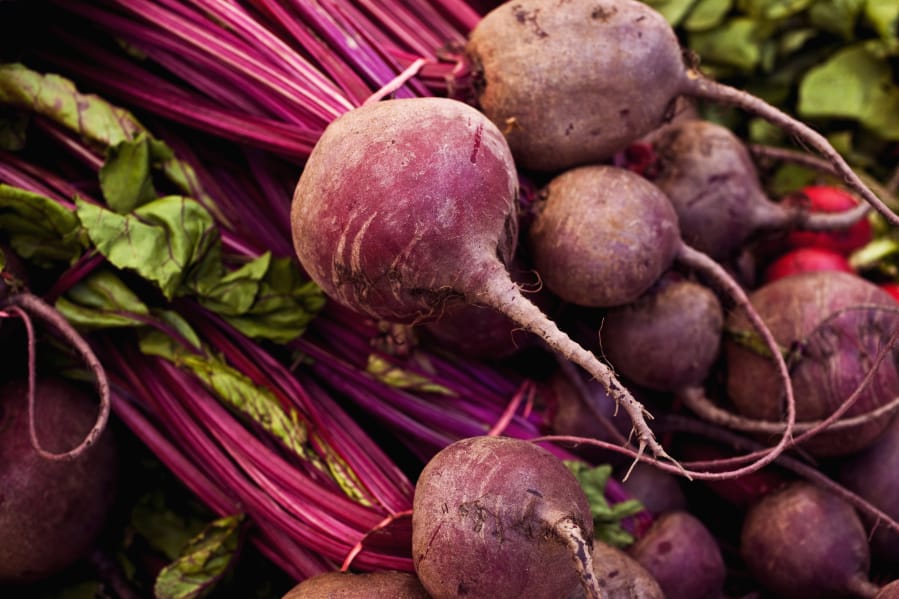A couple of years ago, I was dining at a fine restaurant and was presented with a beautifully plated steak, along with a delicious golden vegetable on the side. When asked, the server told me that it was a roasted golden beet. Now, I was raised eating boiled red beets, and I liked them, but this dish was so good that I have never gone back to boiling beets.
In a totally unscientific poll of friends and family, it appears that about half of those questioned claim to hate beets, having only tried tasteless canned or boiled beets. If you are one of the beet-haters out there, you owe it to yourself to find some fresh, local beets and give them another try.
Beets come in three basic varieties: red, golden and Chioggia beets, which have concentric red and white rings when sliced. Beets are best when harvested between June and October, so this is a perfect time to give them a try.
Beets have been valued since the Middle Ages for their healthy properties, especially relating to illnesses of the blood. Beets are rich in nitrates, which are converted to nitric acid, a compound that relaxes and dilates blood vessels. Studies indicate eating foods rich in nitrates can improve circulation and possibly lower blood pressure. Beets are also rich in betaine, folate, B-complex vitamins, potassium, iron, manganese, copper and magnesium.



